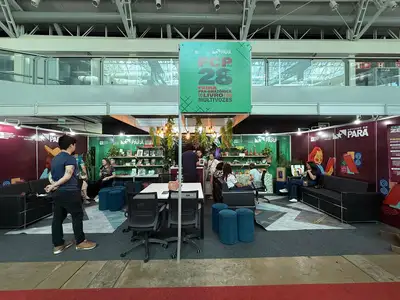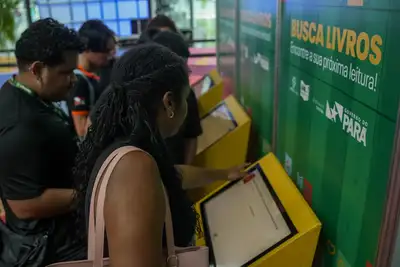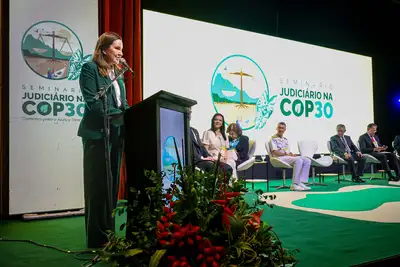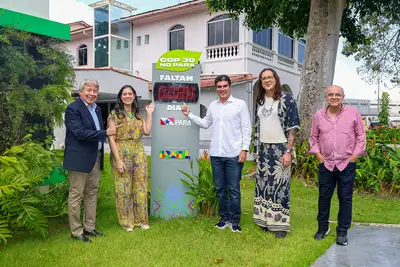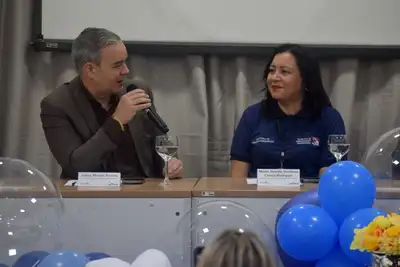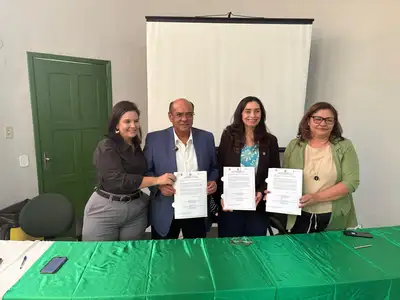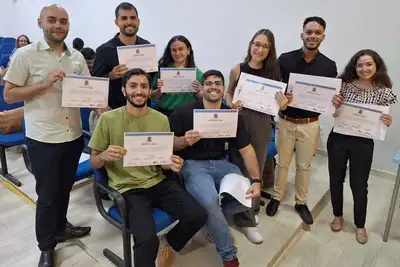Combu Communities Receive Sustainable Rainwater Harvesting Technology from Semas
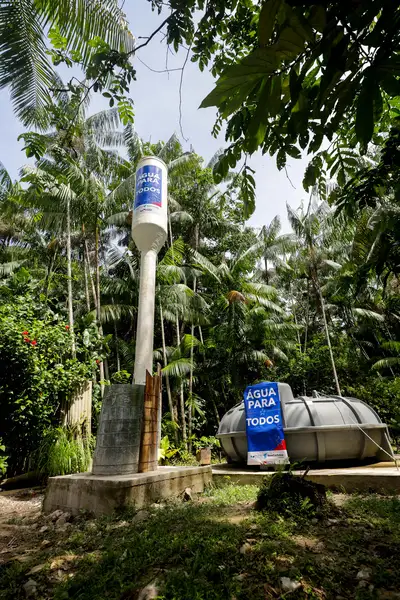
The Environmental Protection Area (APA) of Combu Island, the fourth largest island in the insular region of Belém, is receiving an innovative rainwater harvesting system aimed at ensuring water security and promoting sustainability for the traditional communities in the region. The initiative is part of the “Water for All” project, carried out by the State Secretariat for the Environment, Climate and Sustainability (Semas) and the Institute for Forest Development and Biodiversity of Pará (Ideflor-Bio), with financial support from New Fortress Energy.
The network of partnerships for the implementation of the project also includes Pluvi Intelligent Environmental Solutions, the City Hall of Belém, the Federal University of Pará (UFPA), through the Environmental Nucleus (Numa), and the Geological Service of Brazil (SGB/CPRM).
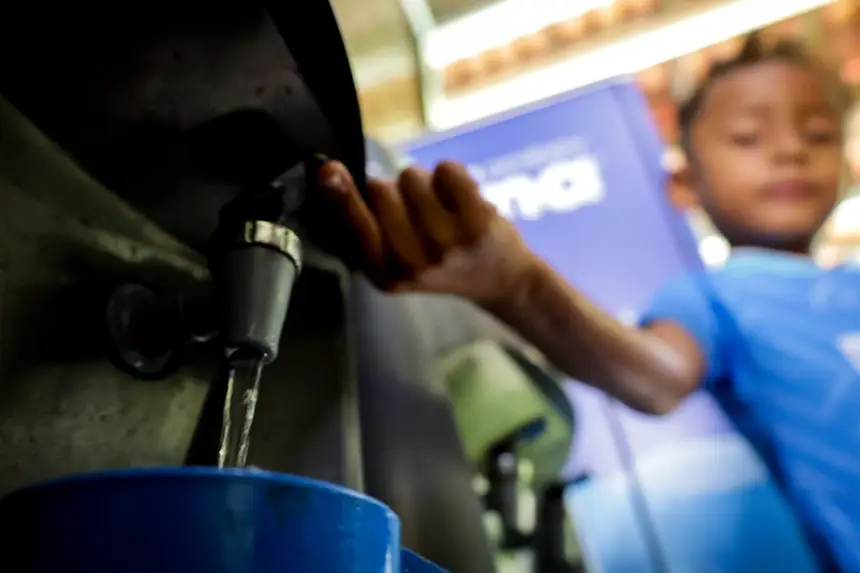
Located just a few minutes from the center of the Metropolitan Region of Belém, the choice of the Conservation Unit (UC) to receive the new system considered the vulnerability in the supply of drinking water faced by the local population. The initiative seeks to meet an urgent demand, combining climate adaptation solutions with sustainable development policies that value the traditional ways of life of the community.
The "Water for All" project is part of the Regulariza Pará Program, coordinated by the Undersecretariat for Environmental Management and Regularity, linked to the territorial and environmental planning component of the implementation of the State Policy on Climate Change.
"The project is a nature-based solution (NbS) aimed at capturing rainwater and transforming it into drinking water through an intelligent system of collection, filtration, disinfection, and supply. We are talking about communities surrounded by fresh water but without access to drinking water, which makes this project a real and urgent implementation of a basic human right to access quality water, essential for health and dignity of people," highlighted Semas Deputy Secretary Rodolpho Zahluth Bastos.
"Moreover, the initiative adopts a social technology adapted to the reality of riverside populations, which represents a differential of the project, contributing directly to the achievement of various Sustainable Development Goals (SDGs)," he concluded.
The project, which started in January 2025, is in the final phase of implementation in the stretch of the Igarapé do Piriquitaquara on Combu Island.
Innovation - The new rainwater harvesting system, called PluGoW, is a technology developed by the startup Pluvi. With a tubular chalice shape, the reservoir can store up to 5,000 liters of water and operates autonomously, using solar energy to pump and pressurize the water, without the need for heavy equipment or complex structures.
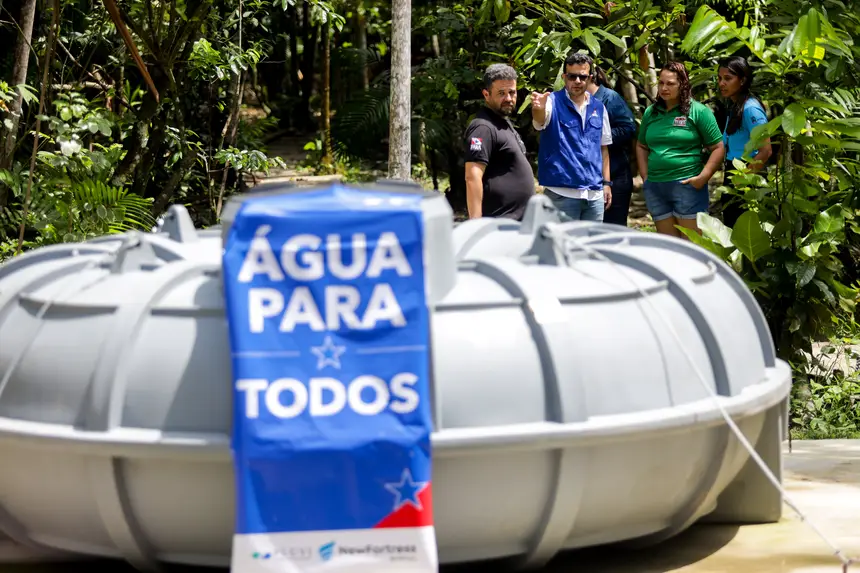
In total, 10 reservoirs will be installed at strategic points on the island, selected based on criteria of social impact, collective reach, and strengthening of the local socio-bioeconomy. The expectation is that about 1,200 residents will be directly benefited, contributing to a new relationship with water resources in the region.
Among the locations included are four elementary school units serving more than 600 children from various communities on the island and also from other nearby islands to Belém: EEFM Anexo Santo Antônio, EEFM Sebastião Quaresma, and EEFM Milton Monte, all located on Combu Island, in addition to EEFM Anexo São José, situated on the neighboring Ilha Grande.
At the São José and Sebastião Quaresma school units, in addition to the rainwater harvesting system, a biodigester is being installed, a complementary solution for managing organic waste, generating biogas for the school kitchen and biofertilizer that will be used for fertilizing aromatic herbs and medicinal plants.
At EEFM Santo Antônio, a set of technologies will be implemented, consisting of a harvesting system, a biodigester, and an eco-library, results of the linkage of ESG projects to the licensing of the company Mizú Cimentos, which integrates environmental education and reading promotion. The biodigesters donated to the schools are the result of the partnership between Semas and the Engie Foundation, aiming to promote effectively positive social and environmental impacts in the long term.
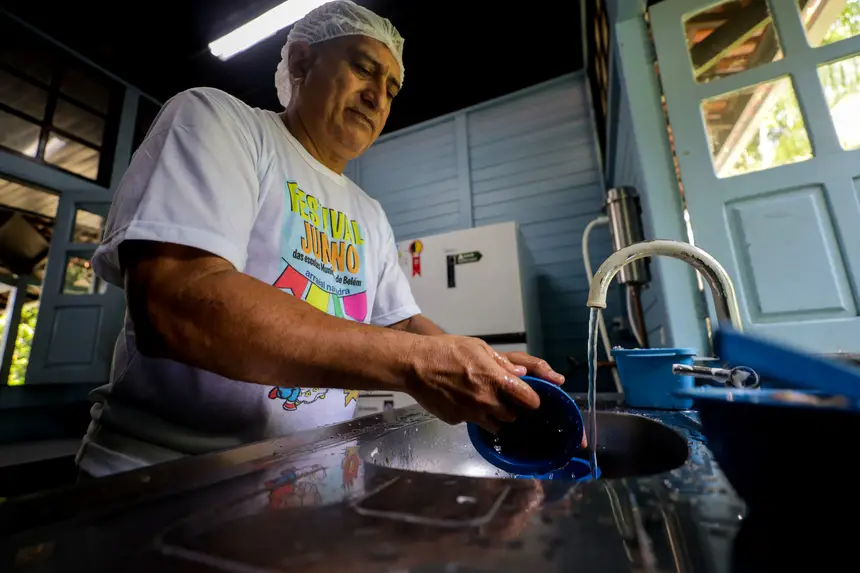
The coordinator of the Santo Antônio school annex, Marcele Moreira, has been working in the education network for over eight years and emphasized that access to drinking water is fundamental for the quality of life of students.
“We are very happy to receive a project of this magnitude. We live in a region surrounded by fresh water, but unfortunately it is not potable. And when working with children and wanting to offer the essentials, we immediately think of water. Within the school, water is used for drinking, preparing food, and washing vegetables and fruits. Having access to quality water is essential for life and school functioning. We know that there are many cases of health problems related to water here on the island, and that is why a structure like this represents a great gain. The impact goes beyond the school walls, positively reaching several families in the community,” said the coordinator.
The “Water for All” project will also serve the Basic Health Unit (UBS) of Combu, ensuring safe water supply for essential primary health care activities. Four other collectives promoting local socio-biodiversity are being contemplated by the project: the Association of Extractivist Women (AME), Ygara Artesanal, the chocolate factory Filha do Combu, and the restaurant Saudosa Maloca.
Júlio Meyer, manager of Ideflor-Bio, the managing body of the APA of Combu Island, emphasized that the knowledge of the local reality, built over years of work with the community, was fundamental for the project to be very well directed.
“The arrival of the project represents a great benefit because it brings health to people and to the environment. This is what we call One Health. This is sustainable development and quality of life. The initiative strengthens schools, community programs, and local productive chains, such as those of andiroba, açaí, and chocolate, giving more prominence to the community. It is a well-directed project, the result of a relationship built over the years between the State Government and the local population. The partnership between the public power, private initiative, and civil society is the true recipe for success,” he commented.
Each reservoir stores up to 5,000 liters of water, with hydraulic capacity to supply showers, toilets, and kitchen sinks.
The initiative offers a practical and efficient solution, especially in regions with high rainfall incidence like the Amazon. The action promotes safe access to drinking water, contributes to the reduction of diseases caused by contaminated water, strengthens sustainable practices, and positively impacts the quality of life of communities.
SDGs - The sustainable water alternative directly contributes to the achievement of the Sustainable Development Goals (SDGs), especially SDG 6 (Clean Water and Sanitation), SDG 11 (Sustainable Cities and Communities), and SDG 13 (Climate Action).
Text: Mário Gouveia/Ascom Semas



